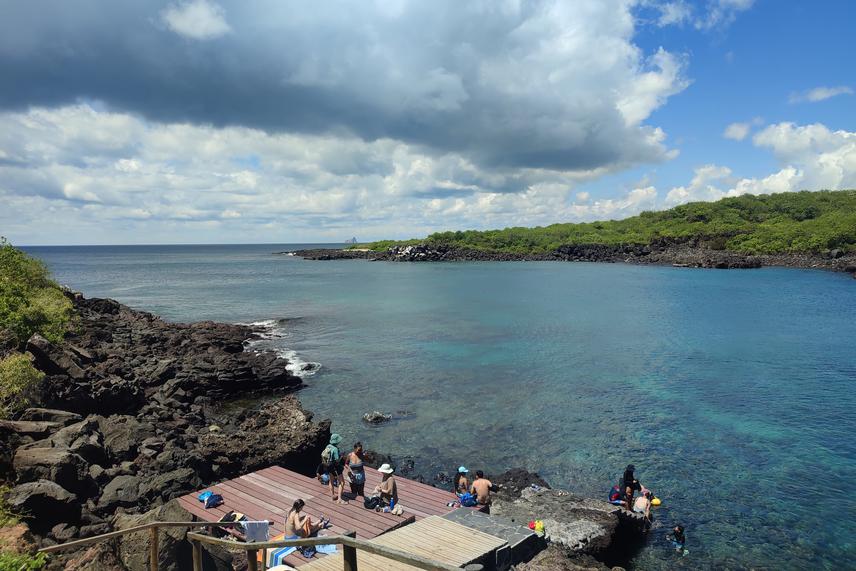Carlos Silva-Zambrano
Marine biodiversity conservation faces significant threats from anthropogenic pressures worldwide. The Galapagos Marine Reserve (GMR), a biodiversity hotspot where more than 2,900 marine species have been documented, is no exception (UNESCO, 2021). UNESCO recently raised serious concerns regarding conservation effectiveness in the Galapagos Islands, highlighting the urgent need to address the impact of escalating tourism, e.g., in 2023, tourism exceeded 320,000 visitors, marking an eightfold increase from the 1990s. This surge in tourism leads to increased direct human-wildlife interactions and damage to marine habitats during marine-based activities in the GMR (Moity et al., 2019).

In 2023, Galapagos hit a record of 329,000 visitors, raising significant concerns about the impact on its fragile marine ecosystems. Tourists snorkeling in the bay of San Cristobal Island. ©Carlos Silva-Zambrano.
To address this issue, the national government has committed to implement policies aligned with zero growth- or slow- tourism strategies. However, these proposals have sparked significant community concerns given that over sixty percent of jobs and eighty percent of local revenues relies on tourism (Burbano et al., 2022). Social resistance in the Galapagos Islands has delayed policy development and implementation, posing a hidden barrier to conservation efforts. To overcome this barrier, this project will assess the social acceptability of conservation policies aiming at reducing disturbances to marine species and protecting their habitats from tourism-related impact.
The study will involve conducting questionnaire-based surveys among Galapagos’ residents and tourists to understand their attitudes and perceptions towards marine biodiversity conservation, the impact of tourism, and their support for proposed policies. Using validated scales and statistical methods such as cluster analysis, hypothesis testing, and regressions, the study will identify and measure the socioeconomic factors influencing the acceptability of these policies (Moynihan and Schuitema, 2020; De Groot and Schuitema, 2012). Ultimately, the project will offer essential recommendations to facilitate the enforcement of policies aimed at reducing pressures from the marine tourism industry. This information will contribute to striking a balance between conservation goals and the use of marine resources, an urgency to ensure the conservation of this fragile ecosystem and the species that call it home.
Header: A colony of sea lions resting at Cerro Brujo, a popular tourist site in the Galapagos Islands. ©Carlos Silva-Zambrano.